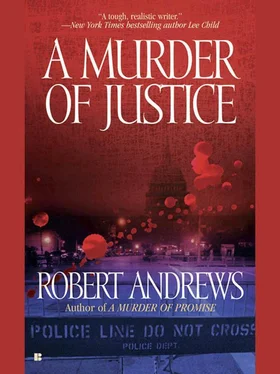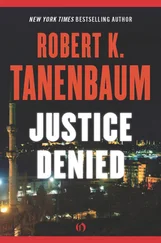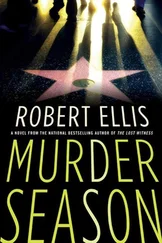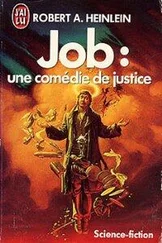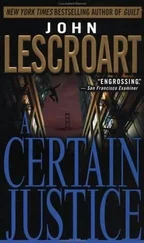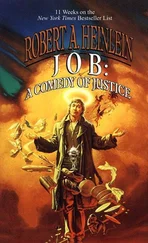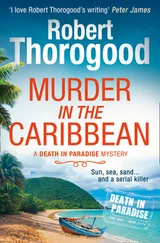Robert Andrews - A Murder of Justice
Здесь есть возможность читать онлайн «Robert Andrews - A Murder of Justice» весь текст электронной книги совершенно бесплатно (целиком полную версию без сокращений). В некоторых случаях можно слушать аудио, скачать через торрент в формате fb2 и присутствует краткое содержание. Жанр: Полицейский детектив, на английском языке. Описание произведения, (предисловие) а так же отзывы посетителей доступны на портале библиотеки ЛибКат.
- Название:A Murder of Justice
- Автор:
- Жанр:
- Год:неизвестен
- ISBN:нет данных
- Рейтинг книги:3 / 5. Голосов: 1
-
Избранное:Добавить в избранное
- Отзывы:
-
Ваша оценка:
- 60
- 1
- 2
- 3
- 4
- 5
A Murder of Justice: краткое содержание, описание и аннотация
Предлагаем к чтению аннотацию, описание, краткое содержание или предисловие (зависит от того, что написал сам автор книги «A Murder of Justice»). Если вы не нашли необходимую информацию о книге — напишите в комментариях, мы постараемся отыскать её.
A Murder of Justice — читать онлайн бесплатно полную книгу (весь текст) целиком
Ниже представлен текст книги, разбитый по страницам. Система сохранения места последней прочитанной страницы, позволяет с удобством читать онлайн бесплатно книгу «A Murder of Justice», без необходимости каждый раз заново искать на чём Вы остановились. Поставьте закладку, и сможете в любой момент перейти на страницу, на которой закончили чтение.
Интервал:
Закладка:
Tompkins answered with a flinty silence.
“Let me explain the position I’m in, Mayor Tompkins,” Rhinelander said. “I’m responsible for appropriations for the District of Columbia.”
“I’m well aware of that, sir.”
“And I’m certain, you’re aware, then, that the curse of government is that there is never enough money to do everything for everyone.”
Tompkins nodded curtly.
“And so, my subcommittee must make decisions. Set priorities on who gets what,” Rhinelander said with a sigh of regret. “And I do not believe it is good government to reward incompetency.”
“There is a point, Mr. Chairman?” Tompkins said.
“Come now, Your Honor.” Rhinelander spoke with a let’s-do-business edge. “The District has great needs. Schools… medical care… Head Start… shelters for the homeless…” He threw his hands up. “The list is endless.”
Lacing his fingers together at his chest, Rhinelander set aside the stick and offered the carrot.
“I am willing to work with you on these problems, Mayor Tompkins,” he said in a conciliatory tone. “But it will be very difficult for me to convince my colleagues to fund these needs when the District government’s credibility is threatened by blatant examples of the inefficiency of its police department.”
Tompkins was silent for a small eternity. A vein pulsed at his temple, and it wouldn’t have surprised Frank if the Mayor had walked. Then Tompkins blinked rapidly several times and the vein stopped pulsing.
“What do you want, Mr. Chairman?” Tompkins asked, his voice leaden.
“For the District’s good, Mayor, we need to get this case behind us. We need more assets, and as well, we need new thinking… new eyes. And that’s why I’ve invited Deputy Director Atkins here.” Rhinelander paused. “I believe the best course is to have the Bureau take over the Gentry and Hodges cases.”
Atkins had the uncomfortable look of a man who wished he wasn’t there. He quickly added, “With, of course, local assistance from your department, Mayor Tompkins.”
Rhinelander got a beatific smile. “Of course, Mayor, of course.”
In a wordless procession through the Rayburn corridors, Frank and Jose accompanied Tompkins to the horseshoe driveway where the Lincoln and the motorcycle escort waited.
An aide opened the rear door for the Mayor. A visibly disheartened Tompkins turned to Frank and Jose.
“Gentlemen, I’m sorry. That crap Rhinelander handed out was undeserved.”
Frank wanted to reach out and squeeze the man’s shoulder, but he didn’t. He said, “I guess politics is being satisfied with half a loaf, Your Honor.”
Tompkins ducked into the backseat. He smiled cynically out at Frank and Jose. “Half a loaf? Sometimes, fellas, politics is being satisfied with one goddamn slice.”
Frank and Jose watched as the mayor’s convoy made its way down the drive, turned right, and disappeared down South Capitol Street.
“No question how Rhinelander knew about that task-force shit,” Jose said.
Frank nodded. “Nobody ever accused Randolph Emerson of not knowing which side his toast was buttered on.”
Jose’s cell phone chimed. He answered, then, covering the mike pickup, whispered, “R.C.”
“You’re where?” Jose asked into the phone.
A pause.
“We’ll be right there,” he told Calkins. He folded the phone and turned to Frank. “We both gettin’ absentminded.”
It came to Frank: The court order in his jacket pocket… Renfro Calkins waiting for Jose and him at the Riggs Bank. “After that crap in there”-he jerked a thumb back over his shoulder-“last thing I feel like doing is pushing a car that’s run out of gas.”
“Aw, come on,” Jose urged, “our chance to give the Bureau a little local assistance.”
A cross Pennsylvania Avenue, half a block east of the White House and opposite the U.S. Treasury, Riggs Bank is Washington’s oldest private financial institution. Riggs financed Samuel Morse’s invention of the telegraph. Abraham Lincoln opened his Riggs account weeks after Jefferson Davis closed his. And court order or not, Riggs took care that its safe-deposit boxes remained as secure as its billions in assets. It was early afternoon before a vice-president ushered Frank, Jose, and Calkins into a small vaulted room.
The Riggs vice-president watched with rapt attention as Calkins opened his print kit, dusted the exterior of the steel safe-deposit box, and lifted the prints. When he had finished, Frank and Jose placed the box contents in a heavy cardboard carton and signed the releases that returned the box to the bank.
Six hours and four carafes of coffee later, Frank tossed his pencil down, cupped his chin in his palm and surveyed his desk, cluttered with notes, crumpled papers, and a take-out container that earlier had held a prosciutto and Taleggio cheese sandwich. Three hours before, R.C. had called in with a preliminary: unsurprisingly, he’d found several sets of Gentry’s prints on the exterior of the safe-deposit box. Martin Osmond’s had appeared as well, on the packet of receipts and, of course, on the will and the cassettes.
Frank glanced at the whiteboard, covered with a hash of dates, times, names. He felt a sudden weariness welling up, a soul-deep exhaustion that had nothing to do with the hour or the stress of the day. He imagined he saw it too in Jose’s eyes.
“Why’d it happen, Hoser?”
“I think that’s pretty clear,” Jose said in a flat, leaden tone.
“No,” Frank disagreed. “What happened’s clear. Why…?” He asked.
Jose got up and stretched. “The U.S. attorney’s satisfied with what happened. We called Atkins. Question is, we gonna let Emerson know?”
Their eyes met.
“Well,” Jose said with a conspiratorial smile, “I had to ask.” He paused, then asked, “How about Tompkins?”
Frank decided that Jose was working way ahead of him.
“Think so, Hoser,” he said. Then, assurance building, “Definitely.”
THIRTY-EIGHT
Just after nine, Frank found a parking place on Virginia Avenue opposite the Watergate complex. Jose got out and stood on the sidewalk, looking up at the tall yellow stucco building that was now a George Washington University dormitory.
“Lost a real piece of American history there,” he said.
Frank followed Jose’s gaze. The dorm once was a Howard Johnson’s. And not just any HoJo. This was the Howard Johnson’s where Nixon’s dirty-tricks team planned their break-in of the Democratic Party’s campaign headquarters in 1972.
“I always wondered about those guys,” Frank said as he opened the car trunk. “I mean, two of those guys… E. Howard Hunt, G. Gordon Liddy.” He lifted out the small tape deck. “I don’t think we would have made the cut: J. Adams Phelps and F. Delano Kearney don’t have quite the same ring.”
Brian Atkins opened the door. He wore faded khakis, a chambray work shirt, and Top-Siders. Over his shoulder, Frank took in a large, softly lit living room. Two dove-gray sofas faced each other, framing a powerfully colored red and blue Persian carpet and a low, intricately carved Chinese bamboo-and-elm table. Against a wall, a very good seascape oil hung over a black lacquer sideboard.
“Gentlemen, come in.” Atkins smiled. He momentarily eyed the tape deck Frank had slung over his shoulder, then turned to lead them to an enclosed balcony. Four teak chairs looked out on the Potomac, black and glistening in the night, and in the distance, headlights raced across Key Bridge between Rosslyn and Georgetown. In the background, jazz played on an unseen sound system.
Frank noticed a highball glass on the coffee table between the chairs.
“I’m having a little medicinal scotch,” Atkins said. “You guys?”
Читать дальшеИнтервал:
Закладка:
Похожие книги на «A Murder of Justice»
Представляем Вашему вниманию похожие книги на «A Murder of Justice» списком для выбора. Мы отобрали схожую по названию и смыслу литературу в надежде предоставить читателям больше вариантов отыскать новые, интересные, ещё непрочитанные произведения.
Обсуждение, отзывы о книге «A Murder of Justice» и просто собственные мнения читателей. Оставьте ваши комментарии, напишите, что Вы думаете о произведении, его смысле или главных героях. Укажите что конкретно понравилось, а что нет, и почему Вы так считаете.
